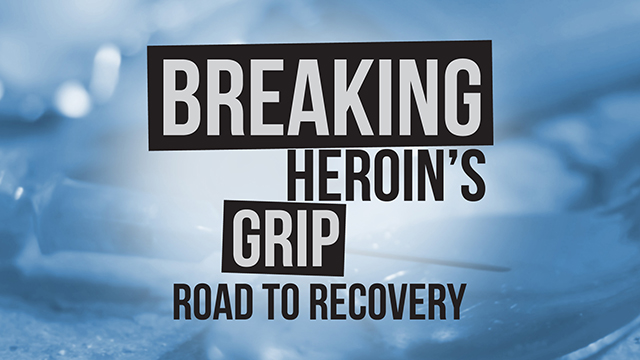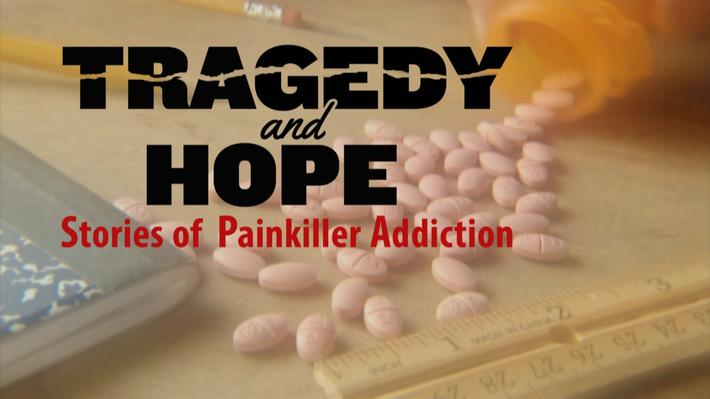MPT's ADDICTION & RECOVERY INITIATIVE
Maryland Public Television: Addiction & Recovery WeekFebruary 6 - February 11, 2017
MPT’s Addiction & Recovery Initiative offers a full week of television programming aimed at uncovering the perils of addiction and highlights the complex and authentic stories of individuals and families living with addictions. By sharing the personal experiences of addicts and their loved ones, we hope to replace misguided conceptions about addiction with compassion for those whose lives are devastated by it, and prove that recovery can be reality. Visit the station website for more information.
ADDICTION AND RECOVERY PROGRAMS
Join MPT for a series of compelling programs covering topics ranging from heroin, gambling and meth addictions, to mothers in recovery and a concert to face addiction. Learn more about these programs on MPT.
Breaking Heroin’s Grip: Road to Recovery
Saturday, February 11, 7:00 – 8:00 pm
Breaking Heroin's Grip: Road to Recovery is a poignant documentary shedding light on our region’s pressing heroin problem. Told through the lens of adults that have experienced heroin’s grip first-hand, viewers will get an authentic look inside the complexities of this harrowing epidemic. The program is produced by Maryland Public Television in partnership with the Maryland Department of Health and Mental Hygiene.
Learn more about Breaking Heroin's Grip and view a clip from the film.
EDUCATIONAL RESOURCES
Use the following resources and activities from public television stations and leading national organizations to support teaching and learning around addiction. Find everything from lesson plans and videos, to curricula and informative articles.
Classroom Resources
Tragedy & Hope: Stories of Painkiller Addiction
Teach your students about the complexities and cycle of addiction with a series of lessons, videos and activities from public media station WNED-TV. The resources are to be used in tandem with video clips taken from WNED’s production “Tragedy & Hope: Stories of Painkiller Addiction."
Designed for use in middle and high school classrooms, this collection of activities come complete with a comprehensive educator’s guide, a community/family guide, support materials, student activities and handouts, and standards alignment.
Key topics include:
• Cycle of addiction and the effects on the body
• Myths & facts about addiction
• Decisions and consequences
• Influences and susceptibility
• Treatment options and stories of hope
*Access the entire resource collection on PBS LearningMedia.
National Institute on Drug Abuse for Teachers (NIDA)
Facilitate learning around the effects of drug use on the brain, body, and lives of teens. Resources include lesson plans and activities, facts about drugs, free materials, videos and more. This site is organized in key sections providing opportunities for teens, middle and high school teachers, and parents.
D.A.R.E. Teaching Students Decision-Making for Safe and Healthy Living
Access student resources and a series of curricula and programs that collectively offer the most comprehensive education program of its kind. The curricula covers elementary, middle and high school grade levels.
FAMILY AND COMMUNITY RESOURCES
Maryland Hotlines and Call-in Centers
Crisis Hotlines: Visit Website
Maryland Crisis Hotline: 1-800-422-0009
Narcotics Anonymous (NA): 1-800-317-3222
MARYLAND RESOURCES
Locate a diverse range of services, supports and programs in Maryland designed to support individuals and families dealing with various forms of addiction.Behavioral Health Administration
Find statewide information and resources about addiction and recovery from the Department of Health and Mental Hygiene.
Resources include:
Community Prevention Services
Overdose Program
Directories and Hotlines
Local Health Departments in Maryland
Search for Health Department’s by county.
Allegany County Substance Abuse and Prevention
Access referrals, tips, resources and contact information pertaining to substance abuse.
Anne Arundel County Department of Health
Find substance use and abuse services for adults and adolescents.
Baltimore City Health Department
Access information about substance abuse and misuse, prevention and overdose.
Baltimore County Government: Prevention Services
The Prevention Services offer online videos for active parenting, an All Stars after school program, a parent guide for keeping teens safe, and outreach opportunities.
Baltimore County Government: Substance Abuse
The Baltimore County Department of Health provides treatment options for substance users and their families.
Dorchester County Health Department
Locate referrals, educational materials, assessment and treatment services.
Visit the county website for information about treatment and recovery.
Harford County Health Department
Access a treatment locator, helpful contacts, crisis and addiction-related resources.
Howard County Government Behavioral Services
Find substance abuse treatment, referrals and helplines.
Montgomery County Department of Health and Human Services
Individuals with mental health and/or substance abuse issues can find support, care and services.
Prince George’s County Government
Locate substance abuse programs, services and treatment for adults and adolescents.
St. Mary’s County Substance Abuse and Treatment
Access services, resources, self-help materials and treatment options.
Wicomico County Health Department
Access addiction-related services for adults and adolescents.
NATIONAL RESOURCES
For resources outside of Maryland, please access one of the following links below. Help, support and programs are available throughout the country.
Substance Abuse and Mental Health Services Administration (SAMHSA)
SAMHSA’s National Helpline is a confidential, free, 24-hour-a-day, 365-day-a-year, information service
(English and Spanish) for individuals and family members facing mental and/or substance use disorders. This service provides referrals to local treatment facilities, support groups, and community-based organizations.
Learn about substance abuse prevention, access behavioral health treatment and services, find information about underage drinking and prescription drug abuse, and other helpful programs.
National Institute on Drug Abuse (NIDA)
Visit the NIDA website for information, articles and resources on treatment and prevention. Resources are available for children, teens, parents and educators.
Connect with a wide range of youth-focused resources about topics including everything from warning signs and prevention, to screening and treatment options.